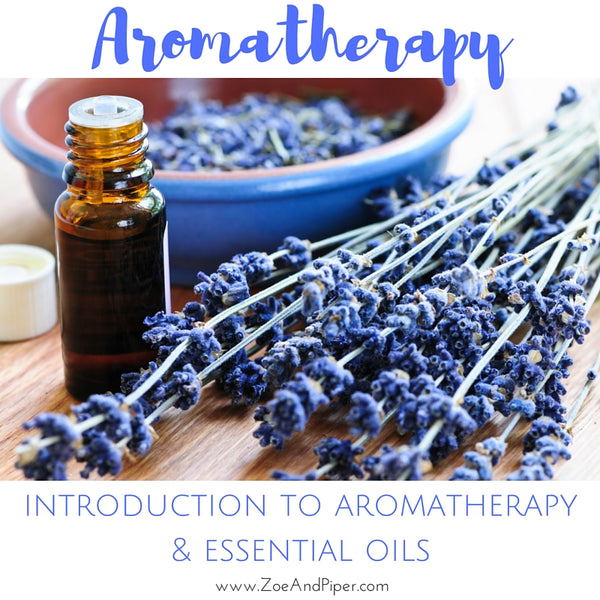Introduction to Aromatherapy and Essential Oils

What is Aromatherapy?
Aromatherapy is a health modality which employs the use of essential oils for a wide variety of healing purposes. Used rightly, aromatherapy can have full-spectrum benefits, helping the subtle bodies as well as more physically oriented problems. Aromatherapy should not be confused with the more popular art of perfumery. Commercial fragrances are designed to appeal primarily, if not exclusively, to the physical senses. They may arouse, seduce, or otherwise invade the senses, but rarely do they lift the consciousness into a higher realm. Pure essential oils certainly harbor pleasant and intriguing fragrances, and this is a vital aspect of their healing power. Yet many of the oils which are used would not be considered appealing by the popular standards of perfumery. Some essential oils are very pungent and even medicinal in character. Other pure oils have beautiful fragrances which we may not be able to immediately appreciate because our senses have been jaded by more overwhelming and excessive synthetic perfumes.
Aromatherapy in a healing context
If aromatherapy is to be rightly employed as a healing art, the inner attitude and skillful perception of the practitioner are paramount. One is not merely using an essential oil to cover up a malady, or for surface pleasure as one would wear a perfume. The essential oils have a powerful capacity to purify and transform, but to be used in this way the practitioner must recognize what is truly needed and apply the oils in creative, insightful ways. Of utmost consideration is the quality and viability of the essential oils which are used in aromatherapy. We live in an era of incredible cleverness and technical manipulation. Chemical, synthetic fragrances can deceive even a relatively trained nose. Yet even if a synthetic fragrance were capable of exactly duplicating a natural plant aroma, it could not be regarded as a healing oil any more than a plastic flower (however perfectly replicated to our visual senses) could be used to make a herbal tincture. Though a fragrance can be chemically perfect it can only be alchemical (i.e., healing) if it contains life force within it. Nature's laboratory is the living, creative work of spiritual beings. Substances from Nature are real because life dwells within them. Perhaps modern science will evolve to the point where there is the heartfelt capacity to work with life force in a co-creative way. Unfortunately, synthetic fragrances derived from chemical laboratories are not based on this premise and simply cannot be used for genuine aromatherapy. Please note: Some people are sensitive to certain essential oils, and may experience skin irritation if these oils are used extensively, or in strong concentrations. Oils should be tested first in weak dilution. Also, some oils may be contra-indicated for pregnancy. If you are pregnant, or believe you may be pregnant, consult a knowledgeable practitioner.
Care of Essential Oils
The longevity of pure essential oils is certainly many years, if not several lifetimes. In fact, excavations of ancient Egyptian tombs have uncovered aromatic formulations which were still potent. When essential oils are extended into other bases such as vegetable oils and cremes they will usually have a reduced shelf life of several months to a year or so. As a rule, you should include pure essential oils in blends and custom formulas which you will use for immediate and short-range purposes. Although they will not spoil readily, it is a wise idea to store your oils in a cool, dark place. This will ensure that they have the greatest vitality for the maximum period of time. Be sure to keep the lids on your essential oils tightly closed and only open them for the amount of time that you need to. Essential oils are volatile and their aromatic properties will definitely evaporate when given the opportunity.
Why natural plant oils are costly
Natural, essential oils are priceless liquid jewels in the treasury of Nature. Very few, if any, plants are naturally oily. It is only during a certain moment in its yearly life cycle that a plant reaches a peak in its secretion of oil. Quite often, a great deal of plant material must be collected to yield even a modest amount of essential oil. These substances are often referred to as ethereal oils because they contain such concentrated amounts of life force. Given this perspective, it is easier to understand why many essential oils are costly. Some of the most precious substances such as pure rose oil can require 2,000 pounds (1,000 kg.) or more of rose petals to yield less than a pound (1/2 kg.) of pure oil. Plant oils are highly volatile and must be expertly distilled in order to capture their highest qualities. Steam distillation is the superior way for extracting most plant oils, and it is also the most expensive. Year to year climatic conditions can also greatly affect oil production of a given plant, and its consequent availability to the open market. Therefore, prices for essential oils will vary greatly depending upon how much plant material is required, how easily the plant yields its aromatic oil, and its seasonal availability.
*This information above was taken from the Flower Essence Services website*
*These statements have not been evaluated by the Food and Drug Administration. Zoe and Piper LLC does not diagnose, treat or prescribe any medical treatment or advice. Always discuss any alternative therapies with your doctor before use.
Safety Guidelines Quick List
- Do a skin patch test before using oils on skin, especially if you have sensitive skin. A good area for a patch test is the inside of the upper arm. Wait at least 20 minutes before applying elsewhere. If skin become irritated, dilute the area with olive oil.
- Applying oils to the bottoms of feet is quick and effective for adults and children.
- Oils rich in Menthol, like Peppermint, shouldn’t be applied to the throat or neck of children under 18 months.
- Some oils cause photo-sensitivity when applied to skin, and can cause a reaction on the area applied. This could result in a sunburn or rash. Some of these oils are Angelica, Bergamot, Cedarwood, Cinnamon, Ginger, Grapefruit, Lemon, Lime, Orange, Patchouli and Tangerine. If these are applied directly to skin, keep this area out of direct sunlight for 1-3 days.
- Keep away from eye area and thoroughly wash hands before handling contacts. If eye contact does occur, dilute with a small amount of olive oil instead of water.
- Do not put oil directly into ear.
- If you have high blood pressure or epilepsy, consult your doctor before using essential oils. Be extra cautious of oils high in ketone, such as Basil, Rosemary, Sage and Tansy. If you have asthma avoid direct inhalation of oils. Topical and diffusion methods are recommended for asthmatic conditions.
- While some therapeutic grade oils have been approved for internal digestion, we don’t recommend internal use of the oils.
- Always check safety data for each particular oil before using on children, and dilute before applying directly to skin.
*These statements have not been evaluated by the Food and Drug Administration. Zoe and Piper LLC does not diagnose, treat or prescribe any medical treatment or advice. Always discuss any alternative therapies with your doctor before use.
